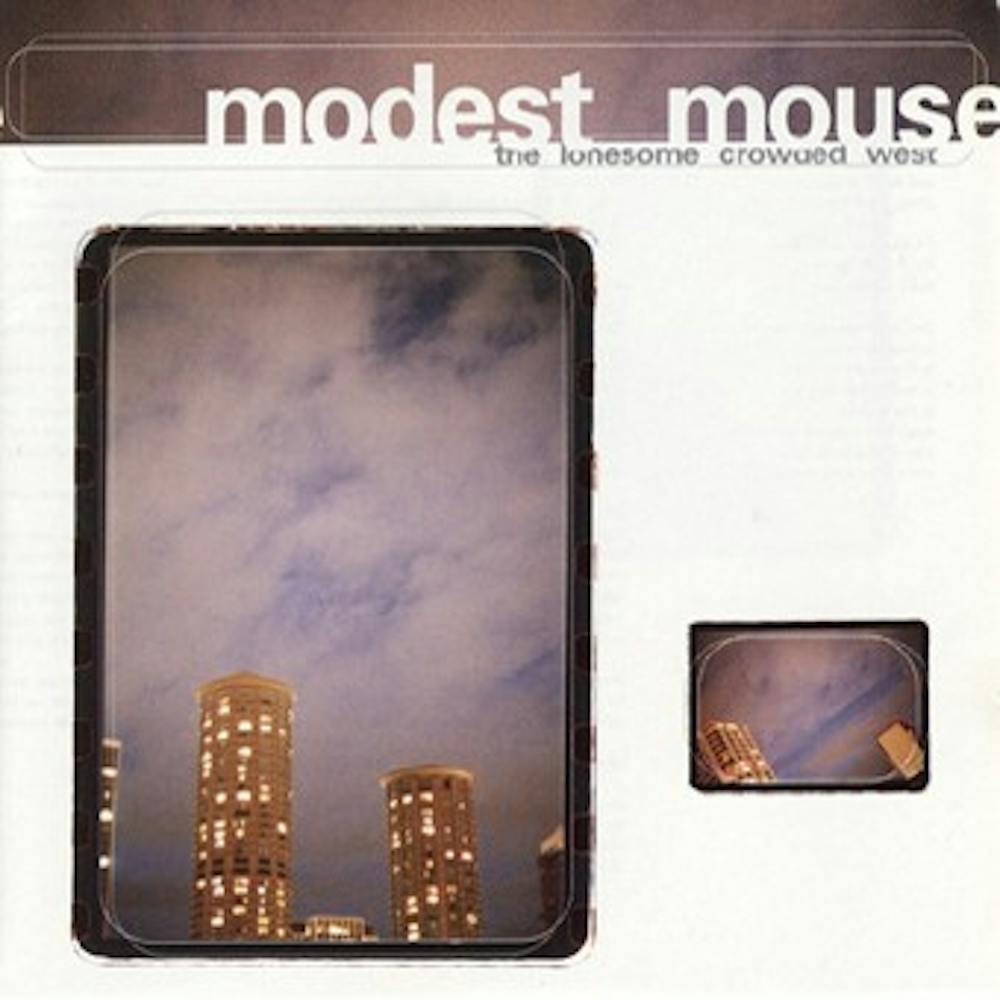On Nov. 18, Modest Mouse’s breakthrough album “The Lonesome Crowded West” celebrated its 20th anniversary. The record is frequently overshadowed by its follow-ups, like the indie rock band’s major label debut “The Moon & Antarctica” and the immensely popular “Good News For People Who Love Bad News.” While those albums are merit-worthy in their own way, they unfortunately conceal the shine of “The Lonesome Crowded West” — a stunning classic in its own right.
“The Lonesome Crowded West” is a historic landmark for indie and alternative rock. The album’s lyrics coincide with the name of the album, displaying a range of anger, shame, isolation, alcoholism, religious confusion, commercialism, corruption and self-destruction. The album juxtaposes feelings of classic American Western isolation with modern-day feelings of crowded city life.
The original three members of Modest Mouse — lead vocalist and guitarist Isaac Brock, drummer Jeremiah Green and bassist Eric Judy, who is no longer in the band — grew up in small towns in Washington that faced the over-building of meaningless strip malls, empty parking lots and the overall “paving” of the West, and the band shows bravery and willingness to challenge the dominance of commercialization in modern America.
Immediately drawing listeners in with the blistering “Teeth Like God’s Shoeshine,” Modest Mouse was determined to make “The Lonesome Crowded West” a challenging listen. As with many stellar album openers, it bottles the greasy essence of what is to come — equal parts frantic, angry and heartbreaking. Its closest relative “Cowboy Dan” chronicles the life and times of the cowboy, a legendary, mythologized figure symbolic of the American sentiment of “I’ve got mine, but I want more,” and is a lost, lonely loser with the stench of alcohol on his breath in the modern world. “He didn’t move to the city, the city moved to me,” Dan mourns, gaping at the sight of the gentrification and modernization of his god forsaken homeland.
In Brock’s horrific visions, everything has come all at once for his beloved tumbleweed towns where nothing happens. The malls are the soon-to-be ghost towns. In “Convenient Parking,” he shouts at the listener, “Well aren’t you feeling really dirty / Sitting in your car with nothing / Waiting to bleed on the big streets / That bleed out on the highways and / Off to the other cities built to store and sell,” mocking the capitalistic process swamping his home. The album is angry at the world, but its protagonists are hopeless and depressed observers, directionless in their anger.
What makes “A Lonesome Crowded West” a classic is that Brock concisely narrates the experiences of the victims of 20th century society. It’s a view not often explored by songwriters, and Brock’s agile, thoughtful take on poverty and sheer hypocrisy alone sets him apart from his peers.
This theme is expanded on “Trailer Trash.” Telling the tale of Brock’s impoverished upbringing, this song is arguably the most devastating song on the album, and perhaps the band’s entire discography. Up to this point, Modest Mouse had been making good EPs with a few standout tracks. “Trailer Trash” is a relatively simple song built around standard chords, but it appears at the perfect time in the album and feels truly transcendental. After the illustriousness of songs like “Teeth” and “Cowboy Dan,” “Trailer Trash” is the moment where the album seems to settle down.
What makes “The Lonesome Crowded West” so important to the music industry is its ability to combine stellar music while emphasizing a distinct statement on modern society. Brock’s vocals are aggressive yet captivating as he describes the troubles that overcome him with the increasingly commercialized West. From start to finish, it’s a riveting project that takes the listener through the utterly bizarre world of Modest Mouse’s home in the Pacific Northwest. In some ways, it evokes the feeling of a long, extensive drive through Washington, journeying through all these exquisite tracks. Unlike many of the mainstream releases of 1997 — and this time period in general — this lo-fi album produced a raw and unsophisticated sound. The album is a quite enjoyable listen, but what’s even more impressive is the fact that it makes the listener really ponder the essence of commercialized America.
“The Lonesome Crowded West” paints a vivid, sweeping image of a real time and place in history. A diamond in the rough of the days before indie-rock had been fully absorbed into the mainstream, “The Lonesome Crowded West” deserves not to be forgotten.





